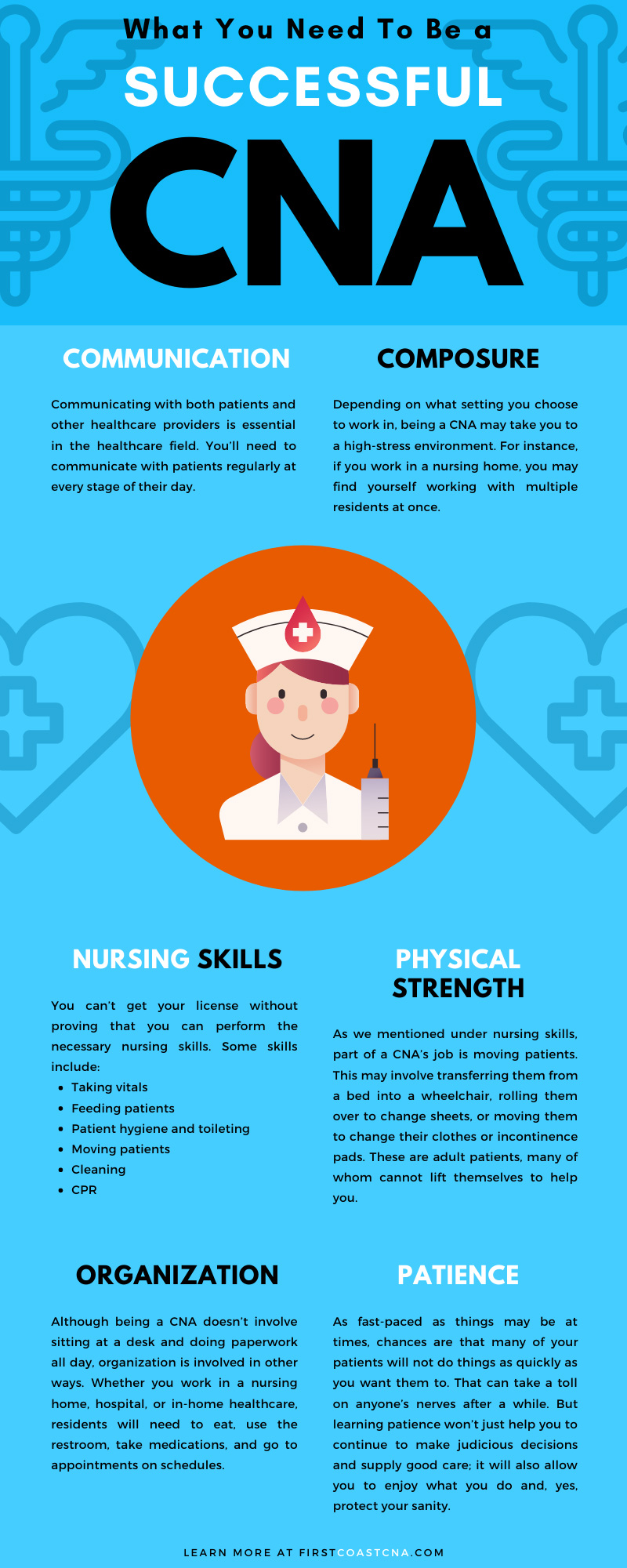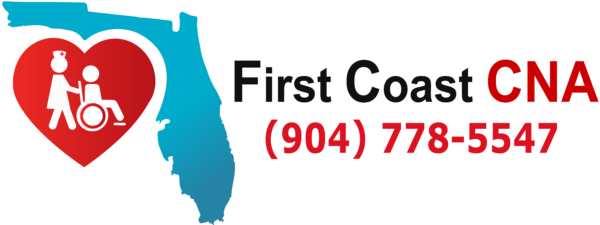How to be a successful CNA
It’s one thing to be able to do a job, but it’s another thing entirely to do a job well. This is true in any career but especially for CNAs. This job that we’ve chosen can be hard sometimes–very hard, if we’re honest. But we also know how important it is to do our jobs well. We are the first and, at times, the only faces that some of the most vulnerable populations see at the most difficult times in their lives. Because we care about your future patients as much as you do, we want you to understand what you need to be a successful CNA.
Hard Skills
Being ready for success in any career depends on two things: one’s hard skills and soft skills. Hard skills are the technical skills one needs to qualify for a job. They are skills that you can demonstrate, measure, and quantify to some extent. They are what makes doing a job possible, and you need to master them in order to be a successful CNA.
Nursing Skills
We’ll start with the admittedly obvious foundation of any CNA career. After all, you can’t even get your foot in the door without your CNA license. And you can’t get your license without proving that you can perform the necessary nursing skills. Some skills include:
- Taking vitals
- Feeding patients
- Patient hygiene and toileting
- Moving patients
- Cleaning
- CPR
Of course, this is far from an all-encompassing list. Even the few things mentioned represent a dozen smaller skills. But these concepts are the building blocks you’ll need to even get your start in the CNA world and be a successful CNA.
Physical Strength
When most people think of jobs requiring “physical labor,” their first thoughts go to careers in places like warehouses or construction sites. But CNA work should creep its way further to the top of people’s “heavy labor job” list. As we mentioned under nursing skills, part of a CNA’s job is moving patients. This may involve transferring them from a bed into a wheelchair, rolling them over to change sheets, or moving them to change their clothes or incontinence pads. These are adult patients, many of whom cannot lift themselves to help you. As such, some physical stamina is necessary.
On the other hand, you shouldn’t fret if you can’t bench-press the weight of a grown man. There will almost always be other staff available to help with moving patients, and the longer you work as a CNA, the easier this will become. You can also help the process by doing strength-building exercises on your own and stretching before and after shifts to avoid injuries.
Soft Skills
Your hard skills will determine whether you can do a job, but your soft skills will determine if you will do a job well. They are the skills that one cannot measure and won’t appear on your nursing exam. But they are skills you need to be a successful CNA.
Communication
Communicating with both patients and other healthcare providers is essential in the healthcare field and to be a successful CNA. You’ll need to communicate with patients regularly at every stage of their day. Telling them what’s going to happen to them will reduce their anxiety, especially if they are suffering from conditions like dementia. Patient families will also need health updates as necessary.
In most instances, CNAs are not the only ones providing care to a patient. There are other CNAs, RNs, doctors, and physical therapists. You’ll need to relay any changes that you see while working with a patient to them, whether it’s food intake, injuries, changes in behavior, or incidents. This communication can be the difference between taking care of minor problems before they become major and a patient not getting the care they need. Learning how to communicate is a key component of being a successful CNA
Organization
Although being a successful CNA doesn’t involve sitting at a desk and doing paperwork all day, organization is involved in other ways. Whether you work in a nursing home, hospital, or in-home healthcare, residents will need to eat, use the restroom, take medications, and go to appointments on schedules. As a CNA, you will likely be one of the driving forces keeping patients on this schedule. You may also need to keep a record of incidents that happen during a shift to report them to other healthcare workers.
Composure
Depending on what setting you choose to work in, being a CNA may take you to a high-stress environment. For instance, if you work in a nursing home, you may find yourself working with multiple residents at once. Or, if you as a correctional nurse, you may encounter situations that you find distressing. Even so, it will be your job to remain calm and make split-second decisions to protect the health and well-being of those under your care. This quality is a must to be a successful CNA.
Patience
As fast-paced as things may be at times, chances are that many of your patients will not do things as quickly as you want them to. They may not always behave rationally, and they may not always be able to remember how or when to do things. That can take a toll on anyone’s nerves after a while. But learning patience won’t just help you to continue to make judicious decisions and supply good care; it will also allow you to enjoy what you do and become a successful CNA, yes, protect your sanity.
Compassion and Boundaries
Caring for patients well starts with caring about patients. It means seeing patients as individuals instead of just as another box on a checklist. This can be difficult in the race to get everything done. Sometimes, it helps to simply take a moment in the midst of whatever you are doing to look your patient in the eye or remind yourself of what the patient has been through.
Of course, this doesn’t mean that you need to exhaust yourself trying to drum up an emotional response to everything that you see. Establishing healthy emotional boundaries is also essential to preventing “compassion fatigue,” which can lead to burnout. As in anything, to be a successful CNA, balance is key.
If you clicked on this website, chances are you want to know how to become a CNA in Florida. It’s our hope that you’ll narrow your goal just a little. Don’t just become a CNA—become a great one.
Need more, read what Indeed has to say about becoming a successful CNA

